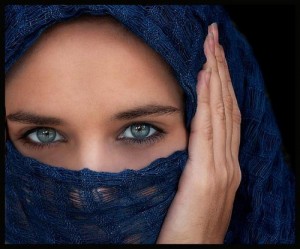PREJUDICE: Muslims disapprove of Hollywood’s cultural inaccuracies and stereotypes that represent their faith.
By Ruthie Farrell, Staff Writer
Recently, our world has shifted from a place of intolerance and condemnation to a relatively healthy environment that supports minority groups. Now our society tends to root for the “little guy”—or so it seemed. The Muslim community (Muslim women in particular) is the minority group that still faces adversity in our country. This is due to many factors. 9/11 swayed many people’s opinions towards skepticism and fright; even the entertainment industry has put this shunning attitude on display. The media is arguably the strongest force that drives the general public’s opinions on culture and politics, and now that they are using their power to hamper with Muslim reputations, people are starting to take notice.
An example of Muslim stereotyping in theatres is Pure Flix’s latest creation, God’s Not Dead. One of the film’s side stories features a young Muslim woman who struggles not only to hide her Christian beliefs from her family,
but also to cope with a scary, abusive father. What would have been, in my opinion, an excellent and engaging film, became just another outlet for naysayers to unleash their disapproval of the Muslim culture.
One of America’s most beloved television networks, ABC Family, also seems to have some insensitivity issues. Their most recent project, Alice in Arabia, was supposed to be aired for
the first time on Monday April 14. One can probably guess how this storyline goes. An American teenager gets kidnapped by her extended Saudi Arabian family and is forced to live in horrible conditions. The Pilot announcement stated: “our heroine must count on her independent spirit and wit to find a way to return home while surviving life behind the veil.” However, the show was cancelled because of major backlash it received on Twitter by flustered Arab-American and Muslim-American groups. By Friday night, ABC Family released this statement: “The current conversation surrounding our pilot was not what we had envisioned and is certainly not conducive to the creative process, so we’ve decided not to move forward with this project.” These are just a few examples of the media’s ignorance and stereotypes. Dr. Jack Shaheen noted in his book, Reel Bad Arabs, that “there have been approximately 350 films between 1970 and 2001 that depicted Arabs and Muslims as terrorists, evil sheiks and other dastardly villains.”
Within the past year, Northwestern University partnered with the Doha Film Institute to conduct research concerning the Muslim reaction to the televised version of their lives. They found that just less than half of Middle East audiences watch Hollywood films at all, and 34 percent believe that movies do not accurately portray life in the Arab world. Also, 65 percent think they are being underrepresented and want more content portraying their own culture and history. “What we see from these numbers is a growing demand for locally generated entertainment. The findings reinforce the idea that nurturing a thriving creative industry in our region is vital to enabling the creation of content that accurately reflects Arab culture,” said Al-Khater, the CEO of the Doha Film Institute.
Photo courtesy of www.agapegeek.com

